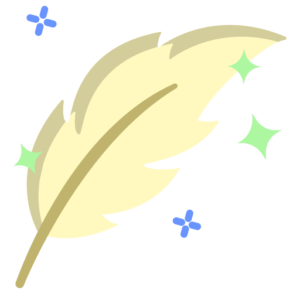Primary Poetry Booklist
On this booklist, we have picked a selection of poetry suitable for primary school classrooms. Scroll down to find the best children’s poetry collections recommended for EYFS, KS1 and KS2.

Primary Poetry Booklist
On this booklist, we have picked a selection of poetry suitable for primary school classrooms. Scroll down to find the best children’s poetry collections recommended for EYFS, KS1 and KS2.
Michael Rosen is a master of the word. He is a master of rhythm and rhyme and a master of the engagement of young children. This book is full of poems specifically aimed at the youngest children. It recognises that enabling children to hear and feel words in an enjoyable and engaging way, is not just a foundational skill for learning to read and write, but a fundamental entitlement for all children to be able to be introduced to the joy of playing with words.
The poems and rhymes follow the loose structure of a child’s day from the rhyme “Up” at the start to “Goodnight” at the end. In between comes rhymes that can accompany all sort of activities such as “On the swings” and feelings, like the rhyme “Happy”. The rhymes are simple and easily recalled but the joy for the child will also be in the illustrations by Polly Dunbar. Pictures of children illustrate each rhyme – my particular favourite is the illustration of the child ‘putting on’ her pyjamas to accompany the rhyme, “Jimmy Jams”.
This is a great book for a parent to share with a very young child and for teachers in the early years to read to their class. Children will quickly know their favourites and in no time will be reading along with the adult.
A new collection of illustrated verses from a range of contemporary children’s poets, performers and hip-hop artists. This is the poetry collection that EYFS and KS1 classrooms have been waiting for! The poems have been selected for their suitability to read aloud and cover topics like minibeasts, pirates, animals and night time. Highly recommended.
Smile Out Loud is a humorous poetry anthology that does exactly what it says in the title: it makes the reader smile and laugh! Offering a variety of poems on all sorts of themes, there is a poem that will appeal to every reader. It also provides examples of rhyming and non-rhyming poetry, something which is important for children to experience.
The first thing to note about this book is the brilliant introduction by Joesph Coelho. He talks about the importance of performing poetry, using actions in poems and most importantly, enjoying poetry that makes you smile, giggle or gives you big belly laughs. This really helps the reader understand the purpose behind the book and each poem.
Not only will the title of the poems hook the reader in but excitingly, each poem is bursting with positivity and also comes with its own small set of instructions which explain how best to read the poem, whether any actions are needed and also how to engage the audience. This will not only help any reader of poetry to think about their audience when performing aloud, but also provide support and inspiration to those looking to write their own poetry in a similar format. The layout and spacing of the poems vary well and showcase different ways to present poetry.
The illustrations by Daniel Gray-Barnett used on each page are playful and engaging in much the same manner as the poems. They are colourful, bold and will no doubt also have the reader chuckling along.
This would be a fantastic book to support any young poet in an English lesson and it would also be a great book to share with a whole class during reading time.
As the title of this poetry collection says, these are ‘zippy poems to read out loud’! Each poem will excite and engage young listeners and these are the sort of poems that children will quickly join in with and learn by heart.
All of the poems are written by James Carter, who has a unique talent for poetry for the young. Each poem is illustrated by Neal Layton and this will provide additional interest when read aloud or when children are browsing the book independently. The poems have clear and wonderful rhyming patterns and this helps to create their ‘read aloud -ability’. Some poems feature repeated patterns such as the title poem, ‘A Ticket to Kalamazoo’ which has a delightful chorus to join in with and ‘Elephant beat’ has an unforgettable repeated question, ‘Fancy a ride on an elephant?’.
The subjects of the poem range from animals to adventures to new versions of traditional stories: ‘Fuss! Fuss! Fuss! or The Goldilocks Rap’ is a favourite! Minibeasts have a high profile in a few of the poems and despite their critical place in our eco-system are rarely celebrated in poetry and these poems make a useful contribution. This is a joyous collection of poetry that would be perfect to read aloud in those spare moments across the school day or in a poetry feast at the end of the day!
This beautiful poetry anthology that includes a new nature poem for every day of the year is likely to become a primary classroom essential. The collection of 366 poems (to make sure leap years are covered too!) contains a really interesting mix of poems from well-known favourites from Christina Rossetti and Walter de la Mare to more modern offerings by Benjamin Zephaniah and Carol Ann Duffy, with each poem reflecting the seasonal changes associated with that day’s position in the year. The book is structured into monthly sections and the poems accompanied by beautiful illustrations that celebrate the beauty of the natural world and changing seasons.
This is a quirky, fun collection of poems from the brilliant Brian Moses. Covering topics as diverse as the eponymous komodo dragons to earwigs, vampires and librarians, there is a poem here to suit everyone. Some are crying out to be read aloud – such as Bang a Drum- while others, like The Moment, are worth reading quietly and savouring. Some will make you think (Custodian), and others will make you giggle (Labrador). Some rhyme, some don’t. My personal favourites have to be Lost in a Book and Librarians – celebrating the power of stories and the value of having someone to guide you through them. With a poem for every occasion, this book of poems is sure to be a hit in any classroom from Key Stage 1 upwards, whether it is used for reading for pleasure or as a basis for writing poetry.
This is a beautiful collection of poems, all themed around different emotional states. Working through the alphabet (Anger, Boredom, Curiosity and so on), each feeling is likened to an animal and starts with the line ‘If ….were an animal’, helping children to identify the words we use to describe emotional states and how the feelings might cause people to behave or react.
The bright illustrations help children to make the link between the emotions and their paired animal. Anger is compared to a lion, boredom is a limp jellyfish, obsession to an otter and zeal to busy, working ants. Children will have loads of fun creating their own comparisons. A comprehensive resource pack is also available to download from the publisher.
A lovely book to help develop emotional literacy, we recommend this as a great addition to book collections in schools and homes.
The Lost Words is a collaboration between Robert Macfarlane and Jackie Morris, seeking to ‘summon what has vanished’ and celebrate a host of disappearing words relating to the natural world. This is a poetry book about preservation – of nature, of language and of childhood – and the beautifully illustrated over-sized hardback volume is in itself a book to preserve and treasure. Inside the book, readers will find acrostic ‘poem-spells’, with each one intending to preserve a nature word that has disappeared from the dictionary as well as to evoke the unique sounds, sensations and moods associated with the experiences of encountering wildlife firsthand.
Inspired by the removal of a number of nature words from children’s dictionaries while the same plants and animals are in very real decline, this magnificent book will please children and adults alike. Each word is accompanied by a breathtaking illustration and poem (or ‘spell’ – the authors encourage you to sing them). Children with an interest in the natural world will discover new words along the way.
This poetry collection for older children from late rap poet and wordsmith Benjamin Zephaniah is a must-have for Year 6. Benjamin Zephaniah’s role in making poetry accessible to a wider audience of young people is nothing short of outstanding.
The rap style of the poems sings through the rhymical lines which are brilliant for reading aloud and the poems are often funny, colloquial in language and sometimes irreverent. There’s a real energy and playfulness to the poems, and hot topics like environmentalism, racism, veganism and politics weave in between bursts of clever wordplay and delightfully silly imagery that will thrill older primary readers.
Many classrooms have poetry book with the classics – which are fabulous – but this collection really celebrates modern, diverse poets and their poetry.
The poems in this book will directly relate to children’s experiences of life and the emotions they will have felt. Some poems tackle more challenging emotions that arise from bullying or sadness and one poem tackles an often unspoken emotion – embarrassment. Some of these poems may need to be introduced sensitively, but the language and range of poetry styles make them accessible to explore as well as providing useful springboards for the discussion of feelings.
Some of the poems lend themselves to being spoken out loud and poems such as ‘Stomp’ and ‘It’s like this’ in the collection almost demand performance. Others are well suited to quiet reflection. The poems are written by a wide and diverse range of poets and this collection makes it a good introduction to some of the great children’s poets of today.
At the back of the book, there are photographs and short biographies of each of the poets. What this makes explicit for children is the diversity of poets as well as their achievements. Many of the poems would work well as models for children’s own poetry writing, with clear patterns that could be followed. For example, the first poem ‘If you could see laughter’ asks us to see laughter as a colour and something we can visualise. Each poem is illustrated in a different style and children could easily identify their favourite illustration. This is a great collection for any classroom.


© BooksForTopics 2015-2024
review
Year group(s) the book is most suitable for:
Year group(s) the book is most suitable for:
Does the book contain anything that teachers would wish to know about before recommending in class (strong language, sensitive topics etc.)?
Does the book contain anything that teachers would wish to know about before recommending in class (strong language, sensitive topics etc.)?
Would you recommend the book for use in primary schools?
yes
Curriculum links (if relevant)
Curriculum links (if relevant)
Any other comments
Any other comments